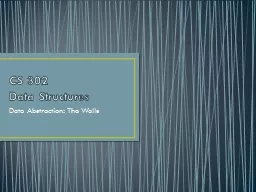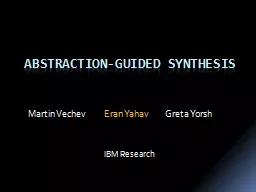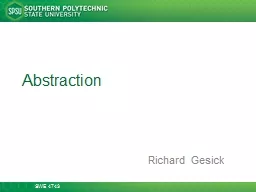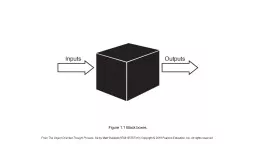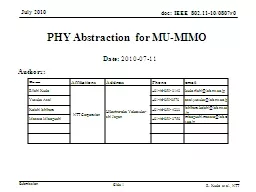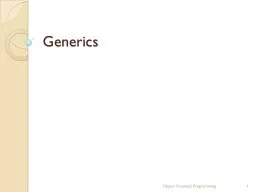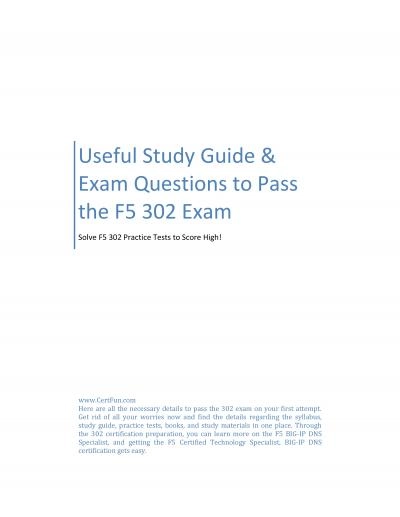PPT-CS 302 Data Structures Data Abstraction: The Walls Object-Oriented Concepts
Author : karlyn-bohler | Published Date : 2019-11-05
CS 302 Data Structures Data Abstraction The Walls ObjectOriented Concepts Encapsulation Objects combine data and operations Inheritance Classes inherit properties
Presentation Embed Code
Download Presentation
Download Presentation The PPT/PDF document "CS 302 Data Structures Data Abstractio..." is the property of its rightful owner. Permission is granted to download and print the materials on this website for personal, non-commercial use only, and to display it on your personal computer provided you do not modify the materials and that you retain all copyright notices contained in the materials. By downloading content from our website, you accept the terms of this agreement.
CS 302 Data Structures Data Abstraction: The Walls Object-Oriented Concepts: Transcript
Download Rules Of Document
"CS 302 Data Structures Data Abstraction: The Walls Object-Oriented Concepts"The content belongs to its owner. You may download and print it for personal use, without modification, and keep all copyright notices. By downloading, you agree to these terms.
Related Documents

